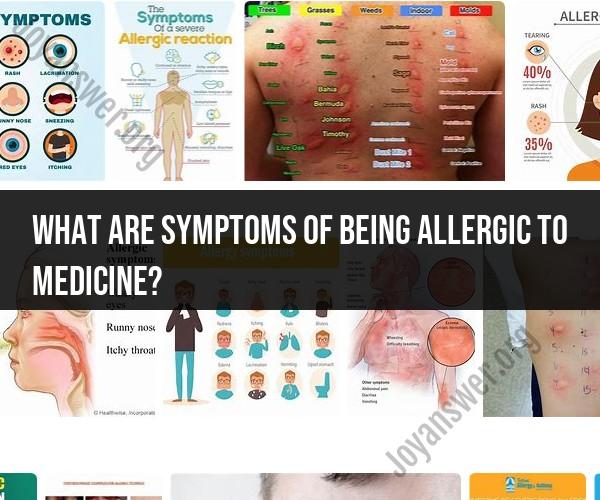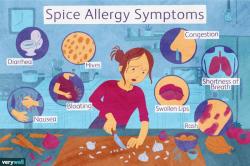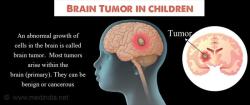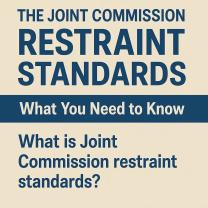What are symptoms of being allergic to medicine?
Allergic reactions to medication can vary in severity, and symptoms can range from mild to life-threatening. It's important to recognize the signs of an allergic reaction to medication and seek immediate medical attention if you suspect one. Common symptoms of a medication allergy include:
Skin Reactions:
- Rash: A rash can appear as red, itchy, and raised bumps or as hives.
- Itching: Generalized itching or pruritus may occur.
Respiratory Symptoms:
- Shortness of Breath: Difficulty breathing or a feeling of tightness in the chest.
- Wheezing: High-pitched whistling sounds while breathing.
- Coughing: Persistent coughing or a cough that develops suddenly.
Facial Swelling:
- Swelling of the face, lips, tongue, or throat (angioedema).
Gastrointestinal Symptoms:
- Nausea and Vomiting: Feeling nauseated and potentially vomiting.
- Diarrhea: Frequent bowel movements that may be loose or watery.
- Abdominal Pain: Cramping or discomfort in the abdominal area.
Systemic Symptoms:
- Fever: A fever may develop as part of the allergic reaction.
- Malaise: A general feeling of being unwell or fatigued.
- Rapid Heartbeat: An increased heart rate or palpitations.
- Low Blood Pressure: This can lead to dizziness or fainting.
Anaphylaxis: In severe cases, a medication allergy can lead to anaphylaxis, a life-threatening allergic reaction that requires immediate medical attention. Anaphylaxis symptoms may include:
- Severe difficulty breathing.
- Swelling of the throat and tongue, which can block the airway.
- A drop in blood pressure leading to shock.
- Rapid or weak pulse.
- Loss of consciousness or confusion.
- Chest pain or tightness.
It's essential to note that not all adverse reactions to medication are due to allergies. Some reactions may be side effects, intolerance, or other non-allergic responses. However, if you experience any of the symptoms mentioned above after taking a medication, it's crucial to stop taking the medication and seek immediate medical assistance. An allergist or immunologist can perform tests to confirm a medication allergy and provide guidance on alternative treatments or medications.
If you have known allergies or a history of adverse reactions to specific medications, inform your healthcare provider before starting any new medication to reduce the risk of allergic reactions.
Decoding Medication Allergies: Common Symptoms to Be Aware Of
A medication allergy is an abnormal reaction of the immune system to a medication. It can happen to anyone, and it can happen with any medication, even over-the-counter medications.
The symptoms of a medication allergy can vary depending on the medication and the person's sensitivity to it. Some common symptoms include:
- Hives
- Itching
- Rash
- Swelling of the face, lips, tongue, or throat
- Difficulty breathing
- Wheezing
- Dizziness
- Fainting
- Nausea
- Vomiting
- Diarrhea
- Abdominal pain
If you experience any of these symptoms after taking a medication, it is important to stop taking the medication and see a doctor right away.
Allergic to Your Medication? Recognizing and Dealing with Symptoms
If you are unsure whether or not you are allergic to a medication, there are a few things you can do to recognize and deal with the symptoms:
- Keep a record of all the medications you take, including the name of the medication, the dosage, and the time you took it. This will help you to track any patterns in your symptoms.
- If you experience any of the symptoms listed above after taking a medication, stop taking the medication and see a doctor right away.
- Your doctor may perform an allergy test to determine if you are allergic to the medication.
- If you are allergic to a medication, your doctor will prescribe a different medication for you to take.
Coping with Allergic Reactions to Medicine: Understanding the Signs
If you have a severe allergic reaction to a medication, such as anaphylaxis, it is important to seek medical attention immediately. Anaphylaxis is a life-threatening condition that can cause difficulty breathing, swelling of the throat, and a drop in blood pressure.
If you think you or someone else is having an anaphylactic reaction, call 911 right away. While you are waiting for help to arrive, you can try to do the following:
- Lay the person down on their back and raise their legs.
- Loosen any tight clothing.
- If the person is carrying an epinephrine auto-injector (such as an EpiPen), help them to inject it into their thigh.
- Stay with the person until help arrives.
By understanding the signs and symptoms of medication allergies, you can take steps to protect yourself and others from serious reactions.
Here are some additional tips for coping with allergic reactions to medicine:
- Be aware of your allergies and let your doctor know about them.
- Wear a medical alert bracelet or necklace that lists your allergies.
- Avoid taking medications that you are allergic to.
- If you do need to take a medication that you are allergic to, talk to your doctor about ways to reduce the risk of a reaction.
- Be prepared to treat a reaction if it does occur. Carry an epinephrine auto-injector with you if you have a severe allergy.
If you have any questions or concerns about medication allergies, talk to your doctor or pharmacist.













